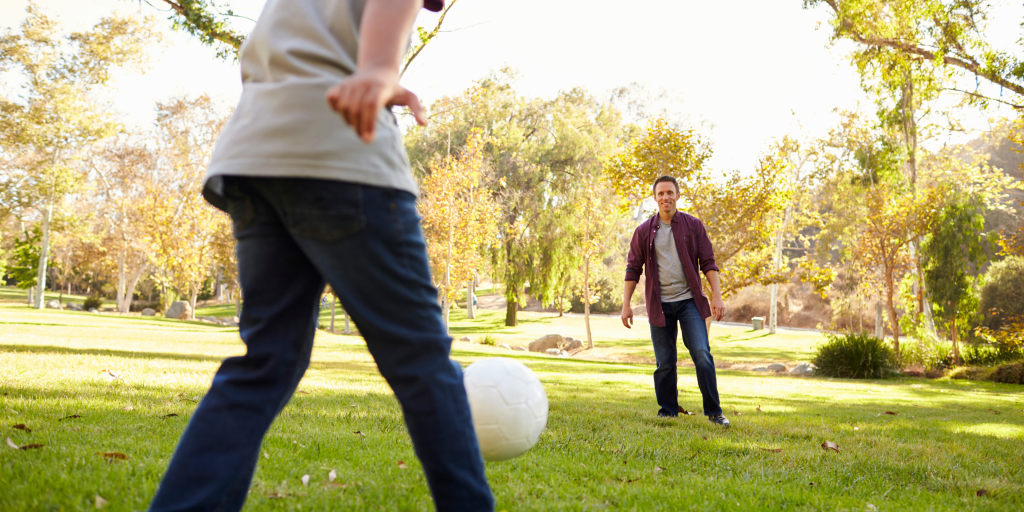
Parent Question:
I am a father to a 10-year-old boy who has been recently diagnosed with ADHD (Attention Deficit Hyperactivity Disorder). He has been struggling in school since day one, so the diagnosis is not a surprise. We had to get our own private assessment with a psychologist as he has been on the waiting list for CAMHS (Child and Adolescent Mental Health Services) for nearly two years. It looks like they might finally see him in the next couple of months.
During the assessment, the psychologist suggested that I also might have ADHD. Certainly, I have had similar experiences in school as my son, though I don’t remember being as overactive as he is. Should I go for an assessment? The main reason I wouldn’t is the cost, which we can’t really afford. Would it help my son if I was diagnosed as well?
Answer:
Attention Deficit Hyperactive Disorder (ADHD) is a developmental difference that is associated with impulsivity, distractibility and inattention which can bring challenges, particularly in school settings. ADHD does have a genetic component, and about 40 per cent of children with ADHD have a parent who shares the condition. In addition, many other neurodivergent conditions such as autism, dyspraxia or dyslexia co-occur for ADHD children, and their parents and extended family are more likely to have these conditions also.
When parents embark on the journey of ADHD assessment and getting help for their child, it can usually mean the start of a wider family journey to understand yourselves and whether you share your son’s ADHD or other neurodivergent traits. In my experience, this can a good thing for several reasons.
First of all, it very helpful for a child with ADHD to see that other people in the family are similar to them and share some of their ADHD traits.
Secondly, as a parent it can be very helpful personally to understand your personality and how you communicate.
It can be healing to re-understand your school experience as not being explained by something being “wrong with you”, but rather by you having different unrecognised needs such as ADHD.
Finally, understanding your own ADHD can be really helpful to your parenting and to improving your relationship with your son.
I have worked with several families where a parent, realising they themselves had ADHD, transformed their parenting. One father I worked with used to be frustrated by the impulsive behaviour of his son, who also had ADHD. Out of good intentions, his father used to nag and cajole his son to change, and this meant him getting angry and over-critical. The father had his own difficult experience of not succeeding in school and was fearful the same thing was happening with his son.
The discovery of his own ADHD helped the father be much more compassionate towards his son and to understand him more. The father realised how traumatised he had been as a child by how his parents and teachers had been “negative” towards him, and he resolved not to repeat this with his son.
Over time, the label of ADHD gave him and his son a shared bond and a permission to explore their common “ADHD passions” together. I remember both used to spend hours dismantling and reassembling bikes together and then cycling dirt tracks at the weekend.
Should I go for an assessment as a parent?
In Ireland, there is a new HSE national clinical programme for adults with ADHD, though services are only in their infancy, and only a few regions in Ireland have teams set up (see clinical programme at hse.ie and discuss the matter with your GP regarding a referral if there is service in your region).
As you have highlighted, private adult assessment for ADHD can be very expensive and prohibitive for many people. However, you don’t have to engage in a formal diagnosis process and you can start your own self-learning journey about ADHD. There are great resources and forums online, and many specifically designed for parents such as yourself. While there are particular benefits to an ADHD assessment for children in that it allows them to access special education supports in school and can enhance their access to third level, as an adult you can access many of these supports without a formal diagnosis.
ADHD Ireland provides support to adults who think they might have ADHD or who might self-identify without a formal diagnosis. They have a new online six-week workshop series, Understanding and Managing Adult ADHD Programme (UMAAP), developed with UCD and the National Clinical Programme. The programme is targeted at adults who are “early on in their ADHD journey” and is open to all, and you don’t need a referral to attend.
ADHD is best conceived of as developmental brain difference that brings strengths and weaknesses, just like “typical” brain development. Many of the challenges experienced by children with ADHD are due to the fact that schools are not set up to address the way they think and behave (eg preferring novel, interactive and experiential learning rather than by rote, repetitive learning involving long periods of sitting, etc).
However, with a good education plan based on their strengths that addresses their weaknesses, children with this condition can thrive and make great progress in school.
John Sharry is founder of the Parents Plus Charity and an adjunct professor at the School of Psychology, University College Dublin. This parenting Q&A was originally published in the Irish Times in October 2023. John writes in the Irish Times Newspaper on Tuesdays. His website is www.solutiontalk.ie.
